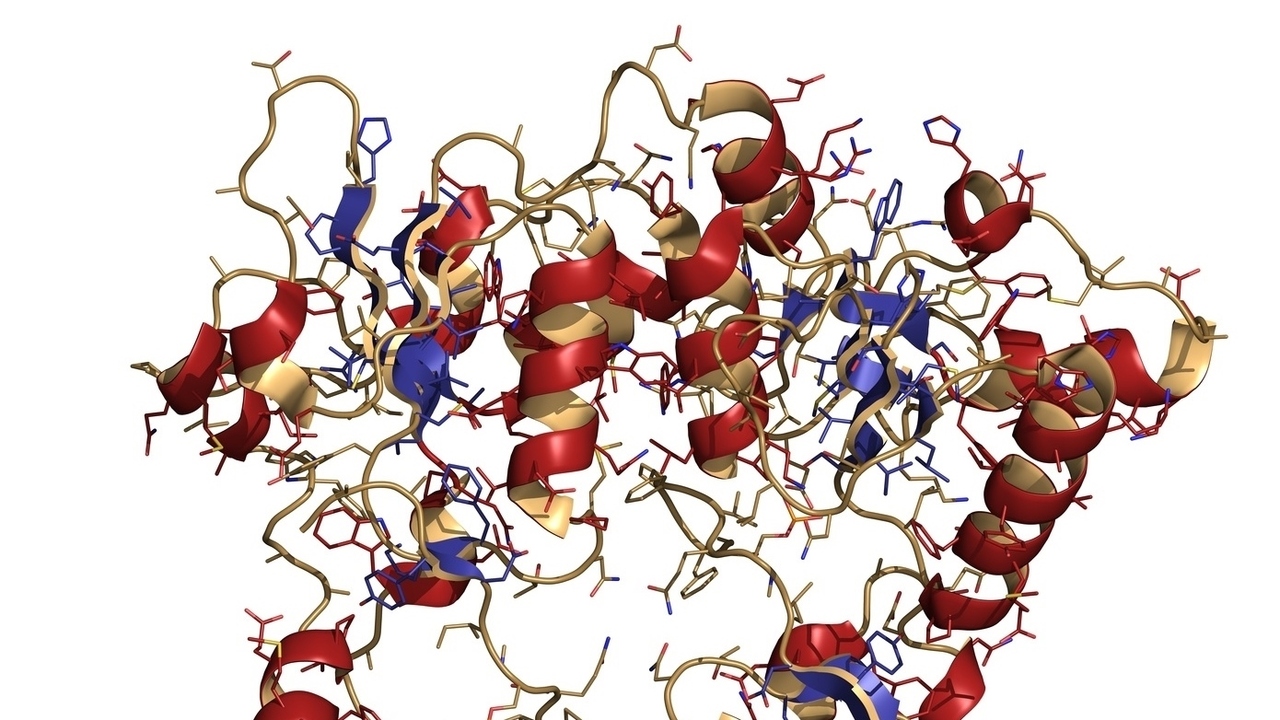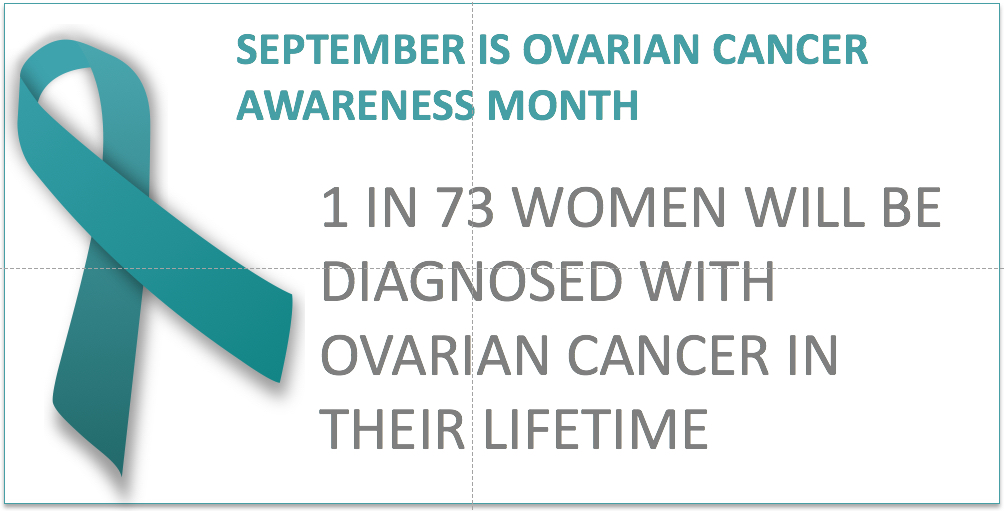 molekuul.be/Fotolia
molekuul.be/Fotolia
If ovarian or breast cancer runs in your family, you may be at increased risk of developing one or both of these cancers yourself. Ovarian cancer is cancer that starts in a woman’s ovary. Breast cancer is cancer that starts in the breast (chest) of either a man or a woman.
In some cases, ovarian and breast cancer can be connected by a genetic mutation that is inherited by blood relatives in a family. This type of cancer is known as hereditary breast and ovarian cancer or HBOC.
BRCA1 and BRCA2 are specific genes located in human DNA. Everyone has both of these genes. When they are normal, the BRCA genes produce important proteins that keep tumors from growing, and help repair DNA that is damaged.
When the BRCA genes are damaged or mutate, the protein the helps fix DNA is not made, or does not work correctly. This means DNA that is damaged may not get repaired, and may eventually lead to cancer.
BRCA1 and BRCA2 genes can mutate or change in different ways. Researchers know that certain, specific changes in these genes cause an increased risk for women to develop breast or ovarian cancer.
Added together, BRCA genetic mutations account for between 20 and 25 percent of all hereditary breast cancers, and as much as 10 percent of all types of breast cancer, stated the National Cancer Institute.
BRCA1 and BRCA2 mutations are also known to cause about 15 percent of all cases of ovarian cancer. Breast and ovarian cancer that develops because of these mutations is likely to start at a younger age than these types of cancers that are not caused by inherited mutations.
People who have multiple cases of either breast or ovarian cancer on the same side of the family are at higher risk than if the cancer is caused by an inherited genetic mutation. Other factors that suggest a possible inherited risk for breast or ovarian cancer include:
• A woman in the family was diagnosed with cancer before age 45.
• A woman in the family was diagnosed with one of these cancers before age 50 and there are other types of cancer in the same family line.
• Two or more women in different generations on the same side of the family had breast or ovarian cancer.
• A woman in the family has had both breast and ovarian cancer, or was diagnosed with breast cancer in either breast two or more times.
• A man in the family has breast cancer.
Families of Ashkenazi Jewish ancestry may also be at risk of an inherited mutation if there is a history of ovarian or pancreatic cancer or breast cancer in a man or woman in the family.
Genetic mutations in the BRCA genes can occur in both men and women. The mutation can be present in someone who develops cancer. But someone who does not have cancer can also carry the gene and pass it on to his or her children.
If your mother or father have a harmful BRCA mutation, you and each of your brothers and sisters have a 50/50 chance that you will inherit the mutation.
Every person inherits one BRCA1 and BRCA2 gene from each of his or her mother and father. If either copy of the BRCA genes is damaged, the risk of cancer is increased even if the second copy of the gene from your other parent is normal.
If you inherit a harmful copy of the BRCA genes, your risk of developing breast and/or ovarian cancer is significantly higher than normal.
In general, about 12 percent of all women will develop breast cancer. But 55 to 65 percent of all women who have a harmful BRCA1 mutation, and about 45 percent of women with a harmful BRCA2 mutation, will develop breast cancer by the age of 70, reported the National Cancer Institute.
Approximately 1.3 percent of all women will develop ovarian cancer. However, 39 percent of women with a harmful BRCA1 mutation and up to 17 percent of women with a harmful BRCA2 mutation will develop ovarian cancer.
Men with the BRCA mutation are also at increased risk of breast and prostate cancers.
Genetic testing can make it possible for a person with a probable family history of BRCA mutation to find out whether his or her own genes are normal, or if he or she carries the mutation.
Blood and saliva tests are available to check for mutations in the BRCA1 and BRCA2 genes.
Results from these tests can help with family planning if you are considering having a baby. A genetic counselor can explain the testing options and what you are likely to learn by taking the test.
The counselor can also help you to explore options if you learn that you do have BRCA gene mutations. Some people with a positive BRCA test choose to have surgery to remove the breasts and/or ovaries and fallopian tubes, to reduce their risk of cancer.
Some also choose to take drugs such as tamoxifen which are cancer treatment drugs, even before they are diagnosed with cancer to try to prevent the disease from developing. Oral birth control pills may also reduce the risk of ovarian cancer. It is recommended that women take them in their late 20s to early 30s.
If you have a positive BRCA test, your genetic counselor and doctor may give you a schedule for preventive tests starting at a younger age than normal. These might include monthly breast self-exams, biannual breast checks by your doctor, MRI scans and mammograms on alternate years, and many more tests designed to catch breast cancer early for most effective treatment.
BRCA 1 and BRCA2 gene mutations are rare. So people who do not have cancer will not need to be tested for BRCA mutations, unless their family history suggests an increased risk for cancer, or if they have specific types of breast cancer.
People with cancer may be tested for BRCA mutations if their family history suggests an increased risk of an inherited cancer. This testing is generally done to provide valuable information about possible cancer risks to other members of the family.
If you have questions about breast or ovarian cancer, or about your possible genetic risks to develop these cancers, talk to your health care provider.
Sources:
National Cancer Institute. BRCA2 and BRCA2: Cancer Risk and Genetic Testing. Web. September 23, 2015.
http://www.cancer.gov/about-cancer/causes-prevention/genetics/brca-fact-...
Cancer.net. Hereditary Breast and Ovarian Cancer. Web. September 23, 2015.
http://www.cancer.net/cancer-types/hereditary-breast-and-ovarian-cancer
Mayo Clinic. BRCA gene test for breast and ovarian cancer risk. Web. September 23, 2015.
http://www.mayoclinic.org/tests-procedures/brca-gene-test/basics/definit...
Reviewed September 24, 2015
by Michele Blacksberg RN
Edited by Jody Smith






Add a CommentComments
There are no comments yet. Be the first one and get the conversation started!